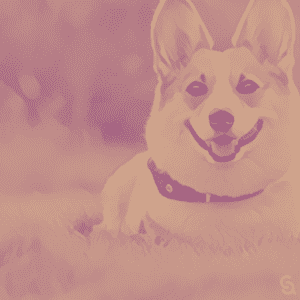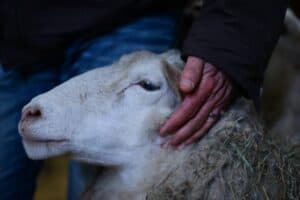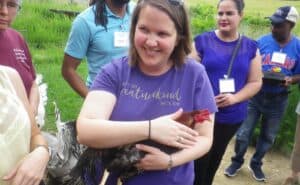 Originally published Dec 6, 2016
Originally published Dec 6, 2016
If you’ve cared for an animal through death, you know it’s a sacrificial commitment, both financially and emotionally. Because our commitment to the animals in our homes is lifelong, it means that we suffer loss regularly. And it means that we sometimes have to make the decision to end our beloved pet’s suffering, even if we’re not ready to say goodbye.
It means I had to tell my five-year-old son that our sweet dog Emma was too sick to save and would need to be euthanized, and hold him while he wailed in my arms as I, too, sobbed at the unexpected and wrenching decision we’d had to make far too soon. It meant that when we picked Isaiah up from the friends who watched him while we euthanized our elderly cat Max, I watched his young face fall when he saw her now-empty cat carrier, the reality of what we had done having finally sunk in. We’ll go through these same painful steps at least four more times in the coming years. It will never get easier or less painful.
A friend of mine was struggling with the decision to end his beloved companion dog’s life. At sixteen years old, her quality of life had declined significantly. He had a reasonable question: “Shouldn’t God be the one to decide when she dies?”
I say that commodification and cruelty come from an impulse to act “like God,” but is that the same impulse that allows us to give our pets a merciful release from suffering? Perhaps. Yet it hurts us to exercise this power far more than it hurts them. A brief pinprick of the needle is followed by a peaceful release, a quick and painless end of the disease or pain that has wracked their bodies. To me, being held by us while a veterinarian administers humane euthanasia is the final gift we can give to the companions who bring us joy and help us develop into more patient, loving, and caring individuals. In the last year, I have held two animals in my arms as they have slipped away, caressing their fur and faces, whispering and singing into their ears, assuring them that I would never forget the sweetness and joy they brought into my life, telling them that they had served well.
I have held two animals in my arms as they have slipped away, caressing their fur and faces, whispering and singing into their ears, assuring them that I would never forget the sweetness and joy they brought into my life, telling them that they had served well.
It wasn’t me they had served, ultimately. They served God. By being their dog and cat selves, they had shown me how to be more merciful, more loving, and more compassionate, centered not on my own wants and needs but on the needs of others. Their lives pointed to God and directed me toward God as well. Even if they had never interacted with a human, their lives would have glorified God. God would have seen them, and they would have seen and responded to God. “How many are your works, Lord! In wisdom you made them all; the earth is full of your creatures” (Ps. 104:24).
The Scriptures repeatedly remind us that there is one God, who is in and through all creation. Each of us has a part to play in the drama of life. Ours as humans is not to dominate or subsume the lives of animals but rather to allow them to flourish so that they may play their part as well.
Sarah Withrow King is the Deputy Director of the Sider Center, the co-director of CreatureKind, and the author of two books, Animals Are Not Ours (No Really, They’re Not): An Evangelical Animal Liberation Theology (Wipf & Stock) and Vegangelical: How Caring for Animals Can Shape Your Faith (Zondervan, 2016), from which this article is excerpted, by kind permission of the publisher.


